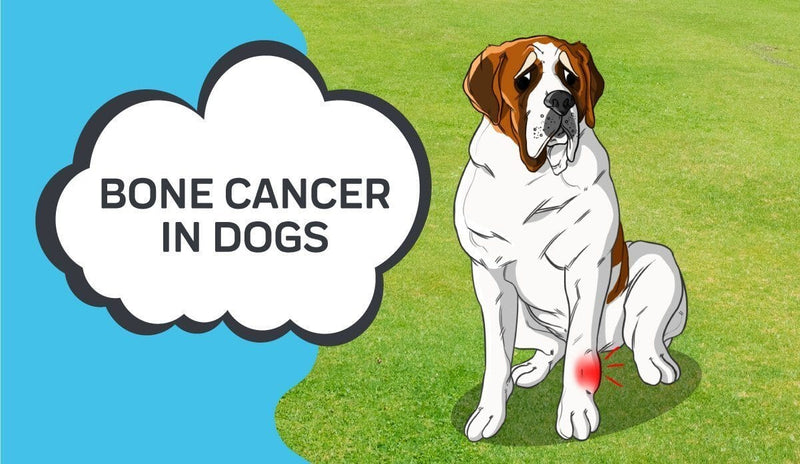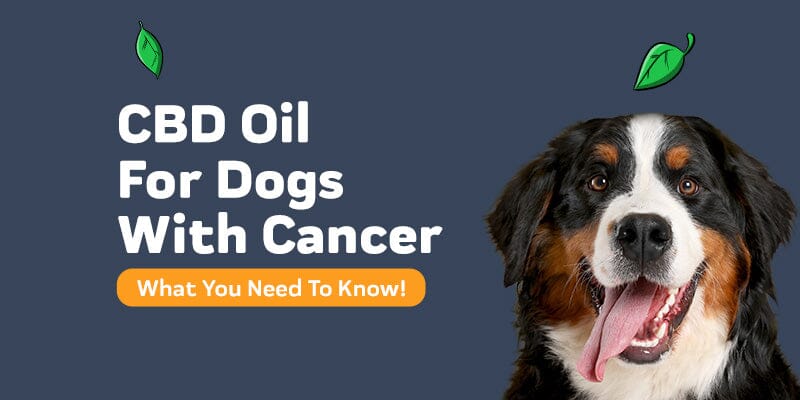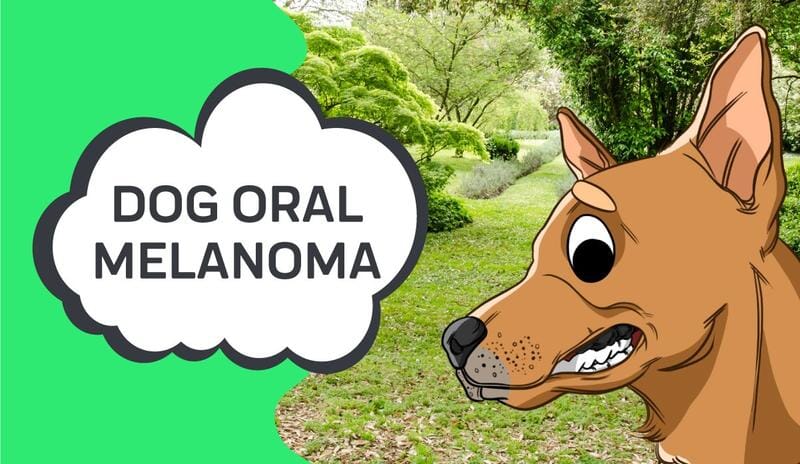- What is Bone Cancer in Dogs?
- What is Osteosarcoma?
- What Causes Bone Cancer?
- Symptoms of Bone Cancer in Dogs – A Few Osteosarcoma in Dogs Symptoms
- How Long Can a Dog Live with Bone Cancer?
- What Breeds are More Susceptible to Bone Cancer?
- How Your Vet Will Search for Bone Cancer
- Treatments for Dog Bone Cancer
- Bone Cancer in Dogs Diet
- How to Give Relief to a Dog with Bone Cancer

Finding out your dog has bone cancer can be a scary thing. Will your dog survive this diagnoses? How is this cancer treated? What are signs of cancer in dogs? Are there ways you can help your dog to stay healthy despite this health problem?
If you’ve asked these questions and are looking for some ways to help understand what exactly bone cancer is and how your dog can be helped, you’ll want to check out this article. Below, you’ll find some helpful information about this disease as well as some treatments your dog will have and diet changes you can implement.
What is Bone Cancer in Dogs?
Bone cancer in dogs occurs when tumors appear in the bones. The most common type of tumor to form in a dog’s bones is osteosarcoma. This cancer begins in one spot but eventually spreads to other parts of the body quickly making it a deadly disease.
What is Osteosarcoma?
As mentioned above, osteosarcoma is the most common type of tumor to develop in a dog’s bones. This tumor, mainly found in large dog breeds like Boxers and Golden Retrievers, can spread rapidly which is why it’s such a problem. It can quickly grow in your dog’s body, and if not treated instantly, can be a deadly problem for your pet. There are many osteosarcoma signs and symptoms you need to watch out for, like swelling and limping.
Because of its strength, osteosarcoma can be very painful resulting in your dog not being able to walk or their bones being weaken and easily fractured or broken.
What Causes Bone Cancer?
It’s not fully known what exactly causes bone cancer in dogs, but there are a few overall ideas. One is that the larger the breed the more intense their bone structure is. This can harbor toxins and other problems that could end up causing bone cancer to form.
The other reason many pet medical professionals believe bone cancer forms in dogs is because of previous blunt trauma to a bone. While this reason has not been fully studied, some believe that the trauma could weaken the bone and cause it to be more susceptible to this cancer.
Symptoms of Bone Cancer in Dogs – A Few Osteosarcoma in Dogs Symptoms
When bone cancer forms in dogs there are a few symptoms that will occur. By keeping an eye out for signs of bone cancer in dogs, you can help to prevent this disease from progressing.
Limping
One of the main ways (and one of the early symptoms of bone cancer) to tell if your dog has canine bone cancer is if they tend to limp quite a bit. This can be a sign that the bones in a certain area hurt when pressure is put on them which can show that the area might be affected by bone cancer.
Limping can also be a sign of lameness. If you find your dog is walking funny or tends to not put pressure on a certain area on their body, it could be a sign of bone cancer. This is because the cancer will cut off the circulation in the legs or feet which can make it hard for your dog to walk because they can’t feel anything.
Swelling
Another one of the first signs of bone cancer is swelling. Because bone cancer causes tears and pain in the bones, the area might be swollen. If you find that a certain area on your dog is extremely swollen, it’s a good idea to get it checked out. This might not be bone cancer, but it’s important to have your vet check it nonetheless.
Trouble Breathing
Another sign of bone cancer in dogs is trouble breathing. This is often caused by the weight and pain created by bone cancer which can make even moving their lungs up and down from otherwise normal breathing difficult to do.
Fractures
Bone cancer causes the bones to weaken which can result in your dog easily getting fractures and even broken bones. If you find your dog can’t move without causing a problem such as this, visit your vet immediately.
Weight Loss
Weight loss is yet another sign of dog cancer symptoms. This is usually caused by a loss of appetite and needs to be addressed immediately. Otherwise, this weight loss can end up causing your dog to lose important vitamins and minerals they need to survive.
Tiredness
Sometimes, tiredness can be a sign that your dog has bone cancer. This is often because your dog’s body is weakened due to it trying to fight off the cancer cells, resulting in your dog not having energy and wanting to sleep most of the time. While it’s common for dogs to sleep for most of the day, some signs of concern could be that they don’t get up to use the bathroom, eat, or play with their favorite toys.
How Long Can a Dog Live with Bone Cancer?
So, how long can a dog live with osteosarcoma? A dog can survive bone cancer, but depending on its aggressiveness, a dog can live anywhere from a few months to a few years. However, if you have an older pup, their survival rate might not be the best because their body is weakened due to age already.
Bone cancer can also strike larger dogs a bit harder due to the size and length of their bones. This could end up resulting in them being in massive pain which might hurt their body even more.
However, if your dog is past the early stages and is instead in the metastasis stage, they may only have about a 10% chance of survival.
Overall, a dog can live for years with bone cancer if treated immediately and monitored, but this depends mainly on your dog and many other factors.
What Breeds are More Susceptible to Bone Cancer?
While any dog breed can get bone cancer
vitamins, certain breeds are a bit more susceptible to bone cancer than others. Three of the most common breeds to get bone cancer are German Shepherds, Golden Retrievers, and Boxers. Bone cancer in Rottweilers, Newfoundlands and St. Bernards is also very common due to their size.
However, this is not to say that smaller dogs can’t get this disease. However, it’s often unlikely they do due to their small bones.
How Your Vet Will Search for Bone Cancer
Your vet will use various methods to help search for bone cancer. During your dog’s appointment, your vet will more than likely use their hands to feel around your dog’s body, especially if they notice signs of swelling or trauma.
If your vet finds something, but isn’t quite sure, they will probably request that some X-rays are done. This will help them to confirm if there is an issue and to better see what the problem might be in those affected areas.
If your dog is diagnosed with bone cancer, your vet will start to discuss treatment options with you to stop dog bone cancer progression. Some of the most popular and helpful being amputation and CBD oil.
Treatments for Dog Bone Cancer
 There are a handful of treatments your veterinarian will recommend to help heal your dog from bone cancer.
There are a handful of treatments your veterinarian will recommend to help heal your dog from bone cancer.
Below are some of the most common types of treatments provided:
Amputation
Most vets often recommend amputation if the bone cancer is located in the arms or legs. This is because the disease can be extremely painful and make your dog suffer greatly. Amputation will help to not only stop the spreading, but give your dog relief from the pain.
Limb Surgery
Limb surgery does not require amputation, but rather will require your vet to insert metal rods and implants into the bone where the cancer is. This is done mainly on the bone itself and is designed to help stop the growth of the cancer.
Radiation
Radiation is one of the common forms of bone cancer treatments for dogs. Your vet will zap beams of radiation on the tumors to help stop their growth. However, it doesn’t fully destroy all the harmful cells so it needs to be done often for best results.
CBD Oil
 CBD oil might be given to your dog by your vet as a way to help ease the pain the bone cancer might cause. In addition to being a pain reliever, CBD oil also contains many nutrients and health benefits of CBD in pets, like reducing inflammation and the size of tumors. While it might not be the only treatment your vet prescribes, it can be a very helpful one.
CBD oil might be given to your dog by your vet as a way to help ease the pain the bone cancer might cause. In addition to being a pain reliever, CBD oil also contains many nutrients and health benefits of CBD in pets, like reducing inflammation and the size of tumors. While it might not be the only treatment your vet prescribes, it can be a very helpful one.
Bone Cancer in Dogs Diet
While your vet might prescribe medication to help stop the cancer in dogs, they will more than likely also ask that you change your dog’s diet as well. In addition to helping fight off cancer cells, a well-balanced diet will also help to keep your dog’s body and organs, like their kidneys and liver, in shape while they are fighting off this horrible disease.
Below are some of the best food items to give your dog if they are diagnosed with bone cancer:
Fish Oil
Fish oil for dogs is high in anti-inflammation properties which can reduce any pain your dog might have due to their bone cancer. It can also help their immune system which can strengthen it so it can fight off any toxins in their body. Fish oil also is high in antioxidants which means it works to help fight off any cancer cells in the body.
Organic Meat
Meat is an important staple in a dog’s diet as it provides vitamins and nutrients to their body. However, many meats are filled with hormones and other chemicals which can have a negative effect on your dog’s body. Because of this, it’s important to give your dog some organic meat. This will help to boost their health while also preventing chemicals and hormones from entering their body. Meat is especially important because it provides protein. It contains high levels of amino acids which can help to keep their bones healthy.
Sardines
Sardines are packed with beneficial vitamins and minerals that will benefit your dog. They are not only packed with protein, but healthy fatty Omega-3s which can kill off cancer cells and boost their immune system.
Go Grain Free
It might seem like grains would be helpful for sick dogs, but this isn’t the case. Many dogs are allergic to common grains, like corn and wheat, which can cause inflammation in their body and itchy skin. Because of this, it’s best to skip grains in your dog’s diet, especially if they have bone cancer.
Broccoli
If given occasionally (and cooked), broccoli can be a very healthy snack for your dog. This vegetable is packed with vitamins and minerals, like Vitamin K.
However, make sure to not overdo broccoli. When given in small and occasional amounts it can be very helpful for your dog, but when given too much and raw, it can cause serious problems.
Kefir
Kefir is a superfood and can help dogs immensely. Packed with probiotics, this fermented milk will work to not only add calcium to your dog’s body to help strengthen their bones, but help their digestive system which can promote better overall health. It’s also filled with vitamins, like A and K, biotin, and magnesium.
However, be careful to not give your dog too much kefir. By giving your dog a large amount of this milk, it could irritate their stomach because of the high levels of healthy bacteria in it. Because of this, it’s important to start small (about 1-2 teaspoons). If you’re concerned about the proper amount to give your dog, make sure to talk with your vet about it.
Vitamin D
Vitamin D helps to stop the production of cancer cells because it works to stop excessive cell growth which could end up encouraging harmful cells to grow and develop. Some food that is high in this is cheese, salmon, and liver.
You can also give your dog Vitamin D in a supplement form. This can be given as a pill or sprinkled over their food in a powder.
While Vitamin D is crucial in a diet such as this, it’s important to not overdo it. Too much Vitamin D can be extremely harmful to your dog and sometimes life-threatening. You should talk with your vet beforehand to see how much you should give your dog before actually doing so.
Yogurt
Yogurt contains high levels of probiotics which can help your dog’s gut to work properly and destroy harmful bacteria in their body. It’s also high in protein and calcium which can help your dog’s bones stay strong and healthy during this hard battle.
Blueberries
Dogs tend to love blueberries, and it’s a good thing because they contain many antioxidants which can be very beneficial to their health. These antioxidants will work to destroy cells that cause havoc on their body and help to balance everything out. They also contain fiber and nutrients which will work to keep their body functioning properly.
How to Give Relief to a Dog with Bone Cancer
It can be difficult to find ways to help give relief to your dog with bone cancer. However, there are some ways you can help your dog and let them know you love them while they are going through this tough journey.
Sit with Them
While you don’t want to bombard your dog with acts of love as this can sometimes irritate them, by just sitting next to them and talking calmly to them, you can help to show you’re with them. Being near their owner and being talked to in a calm voice has been shown to help calm dogs and make them feel peaceful and safe.
Play Some Classical Music
Classical music has been shown to help soothe animals who are in pain or are scared. You can play some of this music softly where they are to help keep them calm and relaxed.
Make Sure They Get Enough Water and Food
It’s vital that your pet gets enough water and food when they are sick, even if they don’t feel like it. While it’s important to not force them to do so, you need to make sure they take even a small amount of them. This will help them to stay hydrated and can even help to give them a little energy.
You can do this by placing their water and food bowl near them. When they want to get up, they’ll have it next to them so they don’t have to walk too far. Make sure to always keep checking the bowls to make sure they’re eating and there’s enough water for them to drink.
Create a Soft Sleeping Area
Creating a comfortable sleeping area for your dog is a good way to help them stay comfortable and cozy. You can make a pile of blankets and pillows for them to sleep on and surround the area with some of their favorite toys.
Bone cancer not only makes your dog not feel well, but it can be extremely painful for them as well. Their bones often feel as if they are crumbling or inflamed which can make moving around a painful task. Because of this, it’s important to know what exactly bone cancer in dogs is and some ways you can help your furry friend out. Be sure to keep the information mentioned above in mind as it’s designed to ensure your pet conquers this horrible disease.
Approved by:
Dr. Ivana Vukasinovic
Doctor of Veterinary Medicine, University of Belgrade
 Ivana Vukasinovic grew up in Serbia and attended the University of Belgrade where she received a degree in Veterinary medicine in 2012 and later completed surgical residency working mostly with livestock. Her first year of practice was split between busy small animal practice and emergency clinic, and after two more years of treating many different species of animals, she opened her own veterinary pharmacy where an interest in canine and feline nutrition emerged with an accent on fighting animal obesity. In her free time, she acts as a foster parent for stray animals before their adoption, likes to read SF books and making salted caramel cookies.
Ivana Vukasinovic grew up in Serbia and attended the University of Belgrade where she received a degree in Veterinary medicine in 2012 and later completed surgical residency working mostly with livestock. Her first year of practice was split between busy small animal practice and emergency clinic, and after two more years of treating many different species of animals, she opened her own veterinary pharmacy where an interest in canine and feline nutrition emerged with an accent on fighting animal obesity. In her free time, she acts as a foster parent for stray animals before their adoption, likes to read SF books and making salted caramel cookies.
Thanks for stopping by!
P.S. We Love You!
Sincerely,
The Innovet Team
Please do not ask for emergency or specific medical questions about your pets in the comments. Innovet Pet Products is unable to provide you with specific medical advice or counseling. A detailed physical exam, patient history, and an established veterinarian are required to provide specific medical advice. If you are worried that your pet requires emergency attention or if you have specific medical questions related to your pet’s current or chronic health conditions, please contact or visit your local/preferred veterinarian, an animal-specific poison control hotline, or your local emergency veterinary care center.
Please share your experiences and stories, your opinions and feedback about this blog, or what you've learned that you'd like to share with others.
















Thank you for this article, it was very helpful.